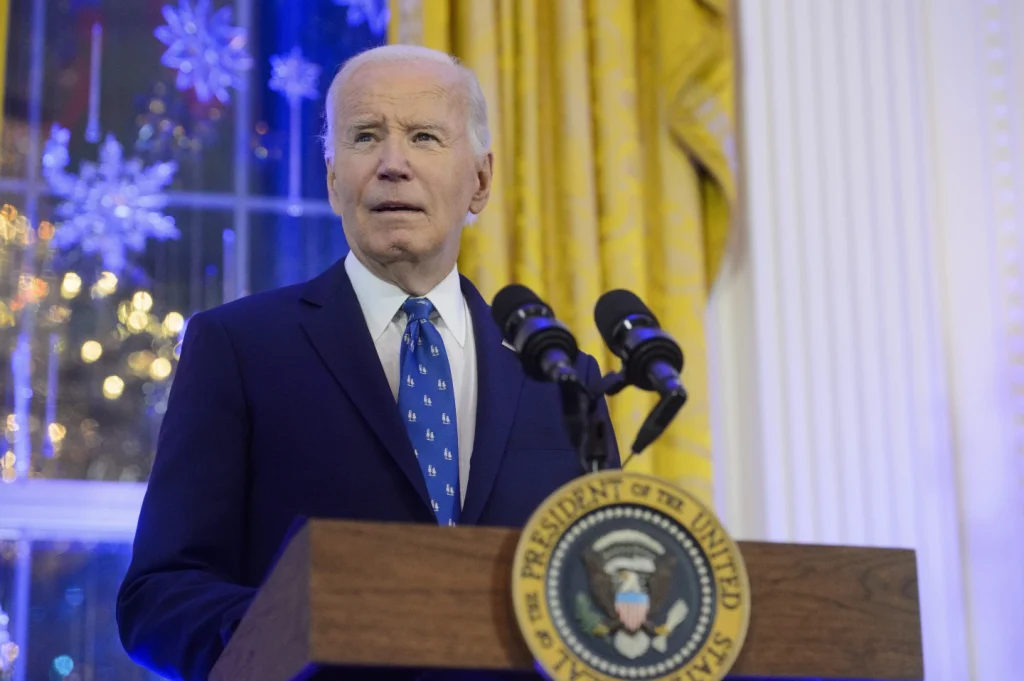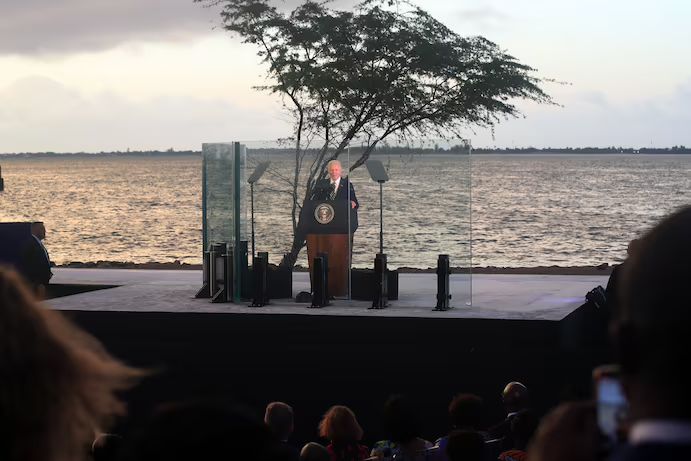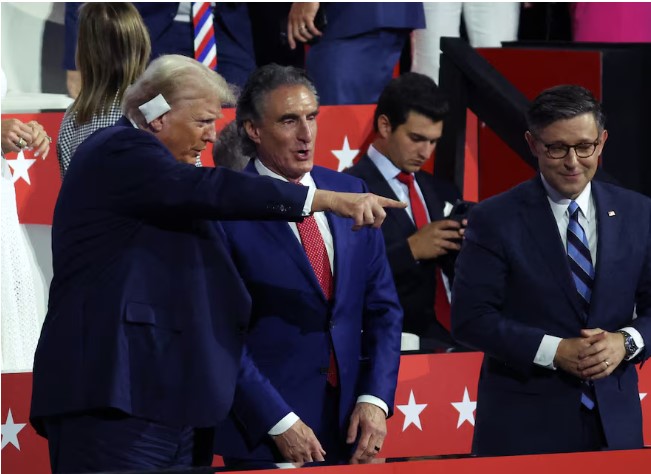Trump Taps Energy Executive Chris Wright for Key Environmental Role in Potential Second Term
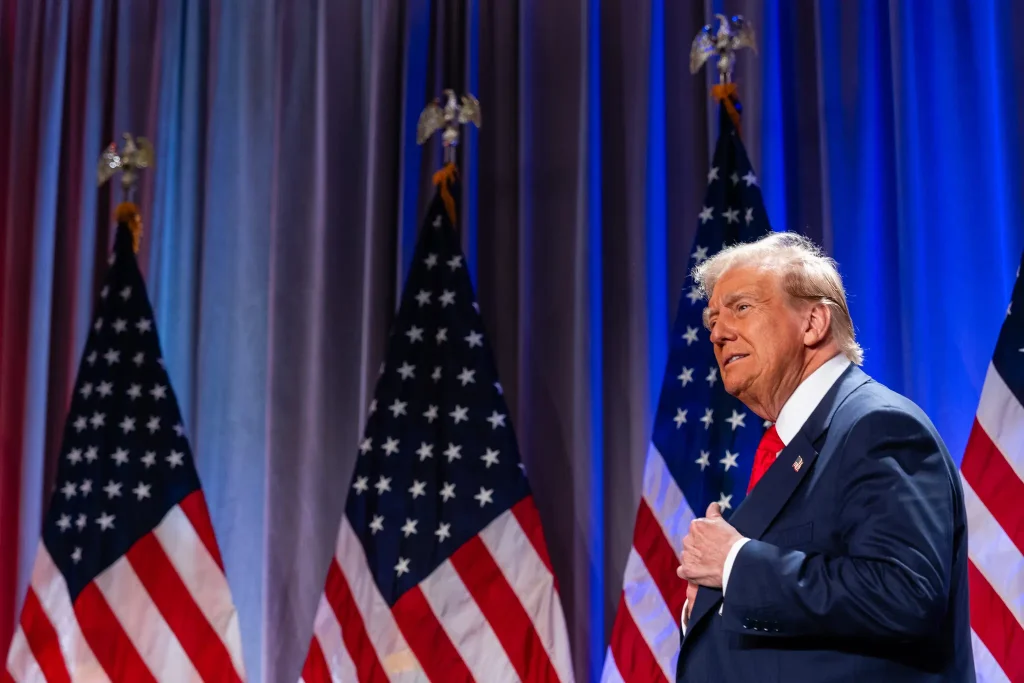
Former President Donald Trump has selected energy executive Chris Wright as a potential key figure in his environmental and energy policy team should he return to the White House.
Wright, the CEO of Liberty Energy, a prominent oil and gas company, has long been a vocal critic of environmental regulations and policies aimed at combating climate change.
His appointment would signal a continuation of Trump’s pro-fossil fuel stance and a push to unwind environmental protections introduced by the Biden administration.
Wright’s selection marks a significant step in Trump’s broader strategy to reshape U.S. energy policy. The former president has made it clear that he views the expansion of fossil fuel production as vital to both U.S. economic growth and energy independence.
Wright, who has built his career in the oil and gas industry, is seen as a strong ally in this effort, with a track record of opposing what he calls “overzealous” regulations that he argues stifle American energy development and economic prosperity.
In the interview, Wright made it clear that he believes the United States should prioritize domestic energy production over reliance on foreign sources.
He also criticized the current administration’s focus on renewable energy, suggesting that such policies are unrealistic and potentially harmful to the economy.
“We need to be investing in American energy, and that means continuing to expand oil, gas, and coal production. These are the resources that power our economy, and they will continue to do so for decades to come,” Wright said. “The push for an all-renewable future is not only impractical; it’s a mistake.”
The selection of Wright, a figure with deep ties to the fossil fuel industry, highlights Trump’s ongoing commitment to policies that prioritize traditional energy sources.
Since leaving office in 2021, Trump has frequently criticized the Biden administration’s climate agenda, including its ambitious goals to reduce carbon emissions and transition to a green economy.
Wright’s potential appointment could bolster Trump’s efforts to roll back regulations aimed at curbing emissions and to promote an “America First” energy policy that emphasizes energy dominance, particularly in oil and natural gas.
Wright has made his opposition to environmental regulations clear throughout his career. As CEO of Liberty Energy, he has advocated for fewer restrictions on drilling and more freedom for energy companies to operate without extensive government oversight.
He has also been a proponent of hydraulic fracturing (fracking), a controversial method for extracting oil and natural gas that has been blamed for environmental degradation, including water contamination and increased greenhouse gas emissions.
If Wright were to take on a high-profile role in a potential second Trump administration, it would likely spark significant debate. Environmental groups and climate advocates are already voicing concerns that his appointment would mark a major setback in efforts to address the climate crisis.
These critics argue that a push to expand fossil fuel production under Wright’s leadership could exacerbate environmental damage and hinder the transition to cleaner, renewable energy sources.
Wright’s stance is in stark contrast to that of climate change advocates who argue that rapid investment in renewable energy is necessary to mitigate the catastrophic impacts of global warming.
They have called for policies that accelerate the adoption of clean energy technologies, reduce carbon emissions, and invest in alternative energy sources such as wind, solar, and electric vehicles.
Many environmental organizations worry that Wright’s potential influence in a Trump administration could undermine these efforts, further entrenching the nation’s reliance on fossil fuels and delaying meaningful action on climate change.
For Trump, however, Wright represents a return to the energy policies that characterized his first term in office. During his presidency, Trump rolled back numerous environmental regulations, including those aimed at limiting greenhouse gas emissions, protecting air and water quality, and curbing pollution from the coal industry.
Trump’s administration also pulled the U.S. out of the Paris Climate Agreement, a global accord aimed at reducing carbon emissions to fight climate change.
Trump’s decision to focus on traditional energy sources and tap figures like Wright underscores his ongoing belief that environmental concerns should not come at the expense of economic growth.
Wright’s potential role would align with Trump’s broader message of prioritizing jobs, domestic energy production, and national security. Trump has long argued that by increasing fossil fuel output and reducing reliance on foreign oil, the U.S. can create more jobs and strengthen its economic and geopolitical position.
As Trump prepares for the 2024 election, his stance on energy and the environment will likely continue to be a point of contention. Supporters of renewable energy and climate action will no doubt criticize his policies, while those in the fossil fuel industry and conservative circles are likely to welcome Wright’s selection.
Regardless of the outcome of the election, Trump’s emphasis on traditional energy sources and his relationship with figures like Chris Wright signal that, if re-elected, he would pursue an energy agenda that leans heavily on fossil fuels and challenges the growing momentum for green energy.
In a potential second term, Trump’s energy policies, guided by leaders like Wright, would likely reshape the nation’s approach to climate change and environmental protection, emphasizing fossil fuels, deregulation, and energy independence.
Whether such policies would help or harm the country’s long-term environmental health remains to be seen, but the appointment of Wright highlights the clear divide in U.S. energy politics as the 2024 election approaches.



